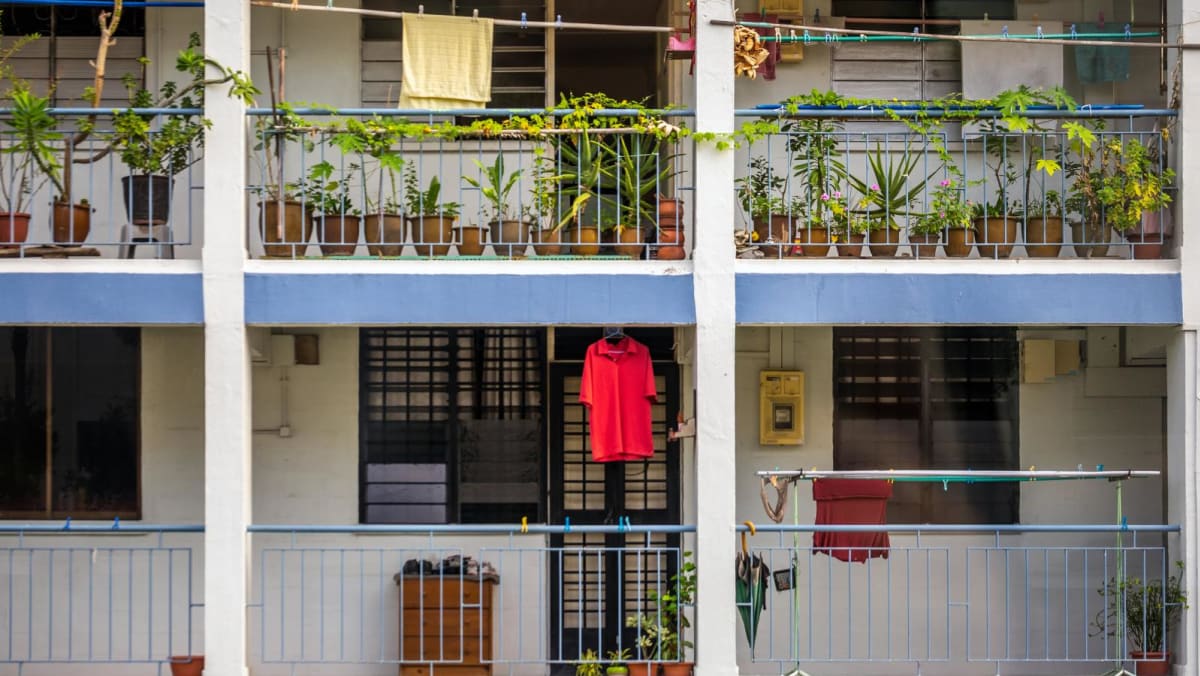SINGAPORE: To support and uplift lower-income families, look to social empowerment rather than social assistance.
This overarching message underpinned two main approaches that the Forward SG report, which was released on Friday (Oct 27), put forth to help such families.
Doing so will “strengthen families’ sense of agency and ownership over their own circumstances, and give them the confidence to work towards improvements in their lives”, the report said.
First, uplift lower-income families towards “sustained progress”. And second, close the early education gaps for these children – particularly among those aged three to four – to ensure they don’t risk falling behind their peers in primary school.
The report, which drew findings from the Forward SG exercise carried out over the past 16 months, recognised that the challenges of social mobility and inequality will “get tougher” in Singapore’s next phase of development. It noted existing efforts in “proactively dealing” with these issues to avoid “starting from a bad place”.
The report added, however: “There is a natural tendency for families with greater means to pass on advantages to their children, enabling them to do even better. Over time, those from lower-income households will find it harder to catch up, and their children will also face many starting disadvantages.”
While the government “will do more to provide equal opportunities, temper unequal outcomes and prevent people from getting trapped in a permanent underclass”, it seeks to ensure that these actions “do not lead to a greater sense of dependency and entitlement”.
Instead, they should “complement and reinforce individual and family effort, as well as contributions from other stakeholders”.
The report highlighted that the benefits of social empowerment can be seen through the Fresh Start Housing Scheme, which since 2016 has helped second-timer families with young children living in public rental flats own a home again.
Under the scheme, eligible families can receive a housing grant if they meet certain conditions, such as stable employment, well-managed finances and regular school attendance of their children. The families also receive support from a social service agency to help them stay on track for home ownership.
In March last year, the government announced that some low-income households would get higher grants to buy their own home as part of enhancements to the scheme. They would also be allowed to buy three-room flats with shorter leases, beyond the current option of two-room Flexi flats with shorter leases.
Related:
'Embrace wider definitions of success': Forward SG report lays out roadmap for a new Singapore vision
SkillsFuture top-up for mature mid-career Singaporeans, more support for ITE grads: Forward SG report
Forward SG report outlines caregiving support, possibility of more parental leave to help families
UPLIFT FOR “SUSTAINED PROGRESS”
Many lower-income families, who struggle to sustain progress in building better lives for themselves, are today supported by coordinated assistance from Community Link (ComLink) officers and volunteers.
To enhance such support, the government will introduce ComLink+ to journey with families over the longer haul. This includes providing “customised action plans” more tailored to each family’s needs, and additional measures tied to progress on specific action plans that families take responsibility for.
It could mean, for example, extending higher and longer-term financial payouts, so long as the families take active steps towards their longer-term goals. This support reduces the short-term resource pressures on families, empowering them to improve their own lives.
The government also asks that businesses and communities contribute financial resources, volunteer their time or offer other support in-kind to help lower-income families. Banks like DBS and OCBC currently invest their time and resources in ComLink programmes, including new schemes.
Related:
Family coaches, 'action plans' for lower-income families in enhanced ComLink: Lawrence Wong
CLOSE EARLY GAPS
Fewer children from lower-income families are enrolled in and attend preschool regularly, particularly at ages three and four, stated the report. Raising preschool enrolment and attendance for these children will reduce the risk of their development lagging behind when they reach Primary One.
But some parents in lower-income families are focused on earning a living, neglecting the benefit of sending their children to preschool, while others may be hindered by cost.
As such, the government will extend full childcare subsidies to all lower-income families “based on their income tier”, so parents can be assured that they can afford to send their children to preschool.
It will also provide selected government-supported preschools with additional funding or manpower, which will help them “engage parents more frequently and implement measures to help children with learning needs keep up with their peers”.
Since January this year, children from families with a gross monthly household income of up to S$6,000 have been prioritised for enrolment into anchor operator preschools. Higher priority is given to families whose gross monthly household income is S$3,000 or below, as well as those under KidSTART and the Preschool Outreach Programme.
The government will also scale up parenting support programmes so parents can “learn different parenting approaches, skills, and strategies to manage their children’s behaviour and to strengthen bonds with their children”, the report added.
Such programmes will also give parents the chance to connect with other parents who have similar experiences, enabling them to better support their children’s development.
The report noted the government’s efforts in progressively expanding the KidSTART programme nationwide. Through the programme, lower-income families can get help for their child from a trained practitioner in areas like health, nutrition, meeting milestones or even navigating childcare subsidies.
“Financial assistance is important as it takes care of basic and immediate needs. But this alone will not be enough because the problems faced by vulnerable families are often complex and multi-faceted,” the report added.
“We therefore need to consider ways to provide more intensive and holistic support, while partnering families to achieve success on their own terms. Importantly, families themselves must be able to sustain their progress.”








